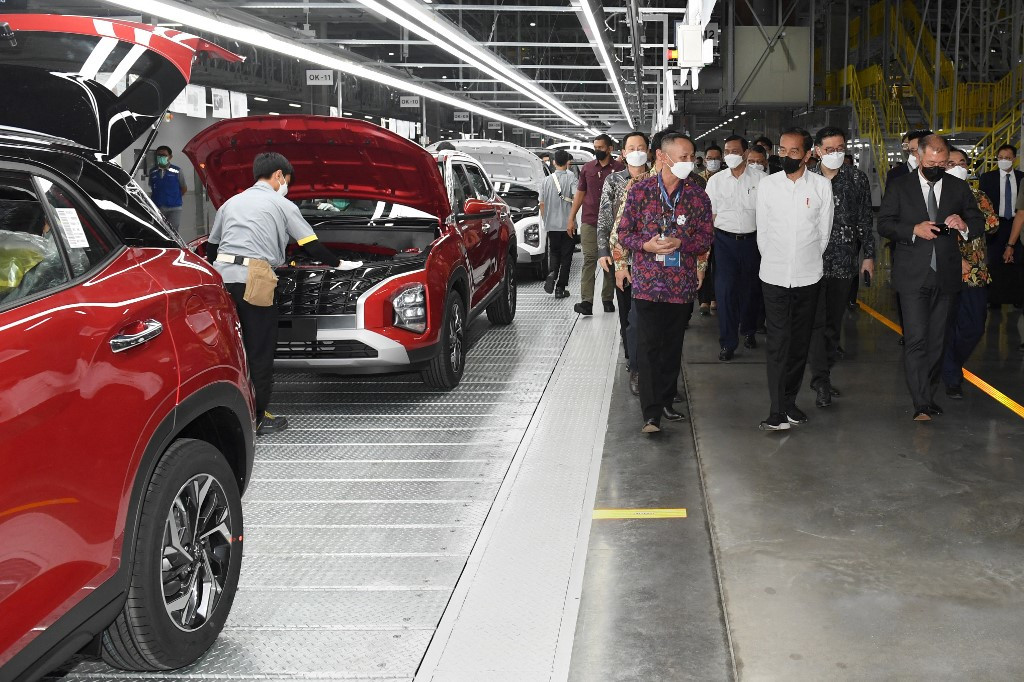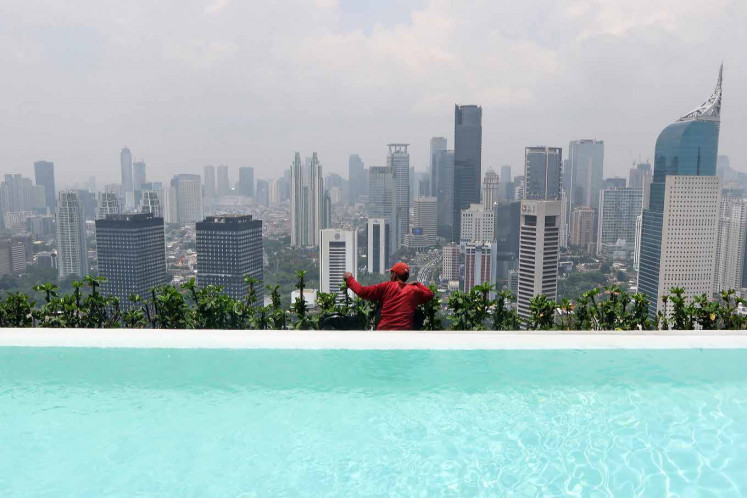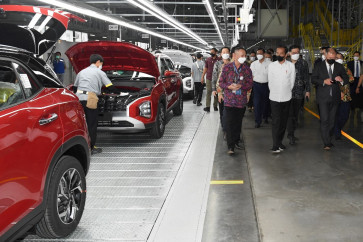Popular Reads
Top Results
Can't find what you're looking for?
View all search resultsPopular Reads
Top Results
Can't find what you're looking for?
View all search resultsTackling barriers to green mobility uptake in ASEAN
ASEAN can become an EV hub to ensure environmental sustainability across the region as long as it tackles the existing barriers to EV absorption as well as anticipates solutions to the environmental impacts of higher EV demand, including manufacturing, battery life and energy use.
Change text size
Gift Premium Articles
to Anyone
S
outheast Asia's transportation sector is the second largest greenhouse gas emitter after the power sector and is projected to account for a 25 percent share of the final energy consumption in 2025.
Shifting from conventional vehicles to green mobility is seen as one option to reduce emissions for environmental sustainability in the region. The use of green mobility, such as electric vehicles (EVs), has been introduced as a green technology solution to tackle climate change and air pollution for its potential to produce less harmful gases than gasoline-fueled vehicles.
EV absorption is expected to expand to around 140 million new consumers in Southeast Asia by 2030. Research has found that Thailand, Indonesia and Malaysia are the largest four-wheeler vehicle markets in ASEAN, accounting for 75 percent of the market share. Meanwhile, 99 percent of two-wheeler vehicle sales come from Thailand, Vietnam and Indonesia.
ASEAN member states have released their own targets in terms of EVs on the road and installing charging infrastructure. Indonesia aims to have 19,000 electric four-wheelers and 750,000 electric two-wheelers on the road, as well as 2,400 charging stations by 2025. As the region's most significant auto production center, Thailand plans to have 50 percent of the cars it produces to be EVs by 2030. Meanwhile, Singapore has announced the phasing out of internal combustion engine vehicles (ICEVs) by 2040.
Despite the availability of policies in shaping an EV-friendly environment, the successful adoption of EVs is also highly dependent on consumer perception. An online survey conducted by the ASEAN Centre for Energy and University of Technology Malaysia identified public opinion on those factors that can help accelerate EV uptake among ASEAN countries. The survey, which involved participants from 10 ASEAN states, showed that only 8 percent of the participants owned an EV, while 10 percent were considering buying one as soon as possible and 84 percent planned to buy one in the next 5-10 years.
The survey listed various factors affecting consumer choices in adopting EVs under three categories: costs, environmental benefits and infrastructure. It found that the top five factors were related to costs and infrastructure: maintenance costs (82 percent), purchase cost (79 percent), charging time (61 percent), availability of charging infrastructure (54 percent) and battery costs (43 percent).
To make owning EVs more affordable, ASEAN governments have launched several initiatives, mainly tax incentives. One of the most common initiatives is duty and tax reductions or exemptions. For example, EVs in Malaysia are exempted from import duty, excise duty, sales tax and road tax, and subjected to income tax relief of up to 2,500 ringgit (US$589).



















